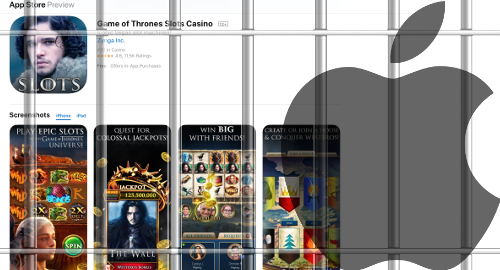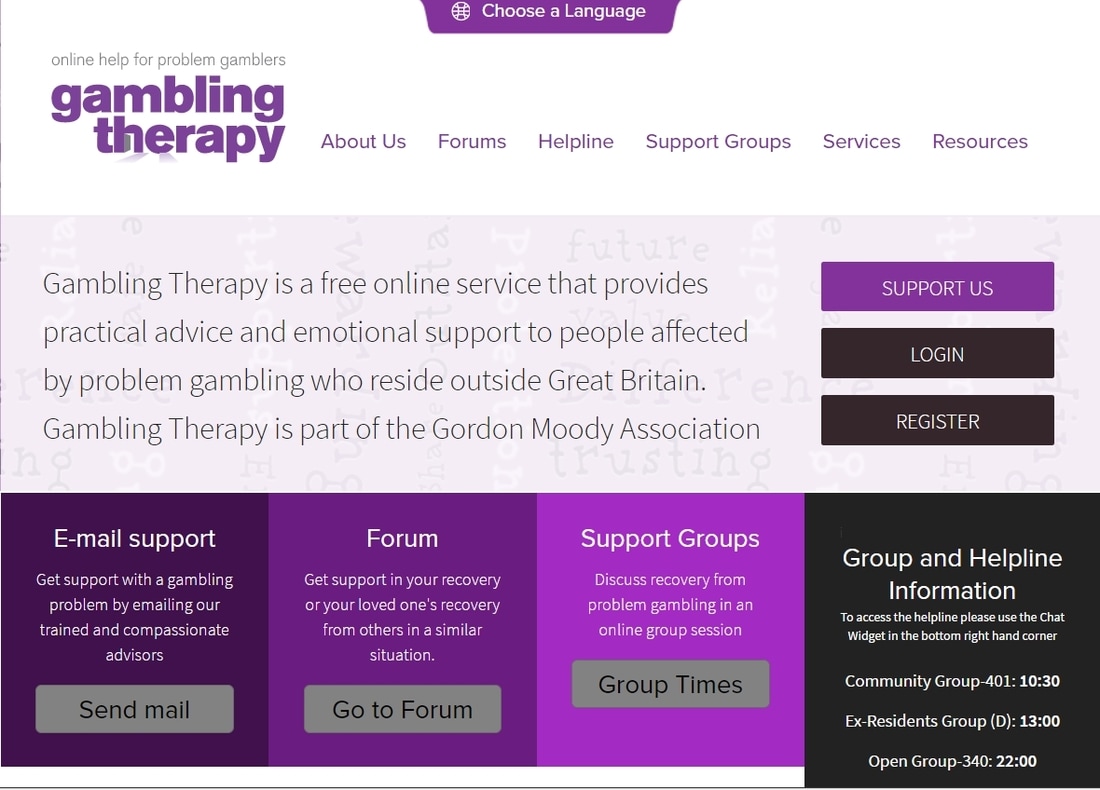Gambling Social Media App
Today's social media world is filled with a lot of irrelevant content and chaos. And, in search of meaningful and personalized engagement, we all are now moving towards smaller, more intimate and engaged micro-communities. But, this changes with #TUBBR, the next-gen social media app. It's your personal social network - Organize your stories. Social media copies gambling methods 'to create psychological cravings' Social media platforms are using the same techniques as gambling firms to create psychological dependencies and ingrain their products in the lives of their users, experts warn.
Social media in 2020 is getting progressively faster, flashier, booming with the diversity of many new features. Multi-purpose platforms like Facebook are receding, while apps that revolve around a single theme or feature are thriving, now that their format is finally aligned with what the world wants. This tendency is particularly useful to understand for marketers and developers targeting the modern market.
Free Gambling Apps

If you are looking to build your own shiny social media app, head on to this blog to learn everything about the process. Otherwise, keep reading and discover several brand new applications worthy of your attention, as well as the ones that are the most fast-growing today despite being launched a while ago.
TikTok
Year launched: 2017
TikTok exploded in 2019, when the Gen Z generation that is the app’s main audience became old enough to venture online. In 2020, TikTok retains its enormous momentum and continues to redefine how social media should approach content creation. In short, this app encourages users to film creative videos up to 60 seconds in length, using the app’s vast collection of soundtracks.
Houseparty
Year launched: 2016
Houseparty is an app for group video messaging, allowing up to eight people to talk at the same time. Stickers, masks, and various effects are included. Houseparty also presents an in-chat gaming feature. The app revamped its brand name and marketing after the initial launch, and the campaign resulted in the climb from 1 to 20 million users in just two years.
Caffeine
Year launched: 2018
Caffeine.tv in 2020 is threatening to present serious competition to the currently popular gaming platform Twitch. The app allows users to launch live video sessions with their families, friends, or followers, and receive real-time feedback as emojis and comments. Users can also stream their PC or TV screens.
Flip Fit

Year launched: 2019
Flip is a mobile application built around social commerce. Users can view the photos of outfits that other people post, rate them, and order the same items quickly and easily. Flip then enables users to share their newly acquired clothes and the resulting look through the app, getting instant feedback from the community, as well as the person’s friends and followers. There is also an option to send back the items that the user did not like.
Upstream
Year launched: 2020
Upstream is a mobile, social, and more user-friendly version of LinkedIn. The app strives to help professionals in various fields build and expand their networks, specifically focusing on finding and giving help in terms of services or employment. The app is currently in beta testing, yet it already shows great potential in enhancing the professional growth of many people. Coupled with the world’s tendency to move to the mobile, and in the wake of the coronavirus crisis, both the concept and the format of Upstream are incredibly promising.
Shoelace
Year launched: 2019
Shoelace is a new app that tries out a more personal approach to social media. The app aims to connect people through in-person activities, which can be helpful to those who move into a new area. Currently, Shoelace is only available for New York City. This Google’s project has the potential of becoming a blast in the following years, when the company rolls it out for more cities and, possibly, expands the app’s reach to cover more of the globe.
Social media apps that are oriented at helping people find each other have a problem of failing to lead to offline meetings. It is simply easier to communicate online, particularly when the platform offers a convenient interface for it. Unlike such apps, Shoelace defines its purpose as enabling people to connect in the real world, linking individuals nearby who share interests.
Steemit
Year launched: 2016
Although Steemit was launched in 2016, this year is when it is likely to grow rapidly. This social media app is basic in its features: it allows users to discuss various topics by making public posts, much like Reddit. The twist is the addition of cryptocurrency. Steemit relies on “Steem” coins to reward popular posts, simultaneously moving these posts to the top of the feed. It might not be a good idea to invest in this app just yet, but as cryptocurrency gains more and more trust from the online community, keeping an eye out for apps like Steemit may be profitable in the long run.
Social media in 2020 is getting progressively faster, flashier, booming with the diversity of many new features. Multi-purpose platforms like Facebook are receding, while apps that revolve around a single theme or feature are thriving, now that their format is finally aligned with what the world wants. This tendency is particularly useful to understand for marketers and developers targeting the modern market.
If you are looking to build your own shiny social media app, head on to this blog to learn everything about the process. Otherwise, keep reading and discover several brand new applications worthy of your attention, as well as the ones that are the most fast-growing today despite being launched a while ago.
TikTok
Year launched: 2017
TikTok exploded in 2019, when the Gen Z generation that is the app’s main audience became old enough to venture online. In 2020, TikTok retains its enormous momentum and continues to redefine how social media should approach content creation. In short, this app encourages users to film creative videos up to 60 seconds in length, using the app’s vast collection of soundtracks.
Houseparty
Year launched: 2016
Houseparty is an app for group video messaging, allowing up to eight people to talk at the same time. Stickers, masks, and various effects are included. Houseparty also presents an in-chat gaming feature. The app revamped its brand name and marketing after the initial launch, and the campaign resulted in the climb from 1 to 20 million users in just two years.

Caffeine
Year launched: 2018
Caffeine.tv in 2020 is threatening to present serious competition to the currently popular gaming platform Twitch. The app allows users to launch live video sessions with their families, friends, or followers, and receive real-time feedback as emojis and comments. Users can also stream their PC or TV screens.
Flip Fit
Year launched: 2019
Flip is a mobile application built around social commerce. Users can view the photos of outfits that other people post, rate them, and order the same items quickly and easily. Flip then enables users to share their newly acquired clothes and the resulting look through the app, getting instant feedback from the community, as well as the person’s friends and followers. There is also an option to send back the items that the user did not like.
Upstream
Year launched: 2020
Upstream is a mobile, social, and more user-friendly version of LinkedIn. The app strives to help professionals in various fields build and expand their networks, specifically focusing on finding and giving help in terms of services or employment. The app is currently in beta testing, yet it already shows great potential in enhancing the professional growth of many people. Coupled with the world’s tendency to move to the mobile, and in the wake of the coronavirus crisis, both the concept and the format of Upstream are incredibly promising.
Shoelace
Year launched: 2019
Shoelace is a new app that tries out a more personal approach to social media. The app aims to connect people through in-person activities, which can be helpful to those who move into a new area. Currently, Shoelace is only available for New York City. This Google’s project has the potential of becoming a blast in the following years, when the company rolls it out for more cities and, possibly, expands the app’s reach to cover more of the globe.
Social media apps that are oriented at helping people find each other have a problem of failing to lead to offline meetings. It is simply easier to communicate online, particularly when the platform offers a convenient interface for it. Unlike such apps, Shoelace defines its purpose as enabling people to connect in the real world, linking individuals nearby who share interests.
Social Gambling Apps
Steemit
Gaming Social Media Apps
Year launched: 2016
Real Online Gambling Apps
Although Steemit was launched in 2016, this year is when it is likely to grow rapidly. This social media app is basic in its features: it allows users to discuss various topics by making public posts, much like Reddit. The twist is the addition of cryptocurrency. Steemit relies on “Steem” coins to reward popular posts, simultaneously moving these posts to the top of the feed. It might not be a good idea to invest in this app just yet, but as cryptocurrency gains more and more trust from the online community, keeping an eye out for apps like Steemit may be profitable in the long run.